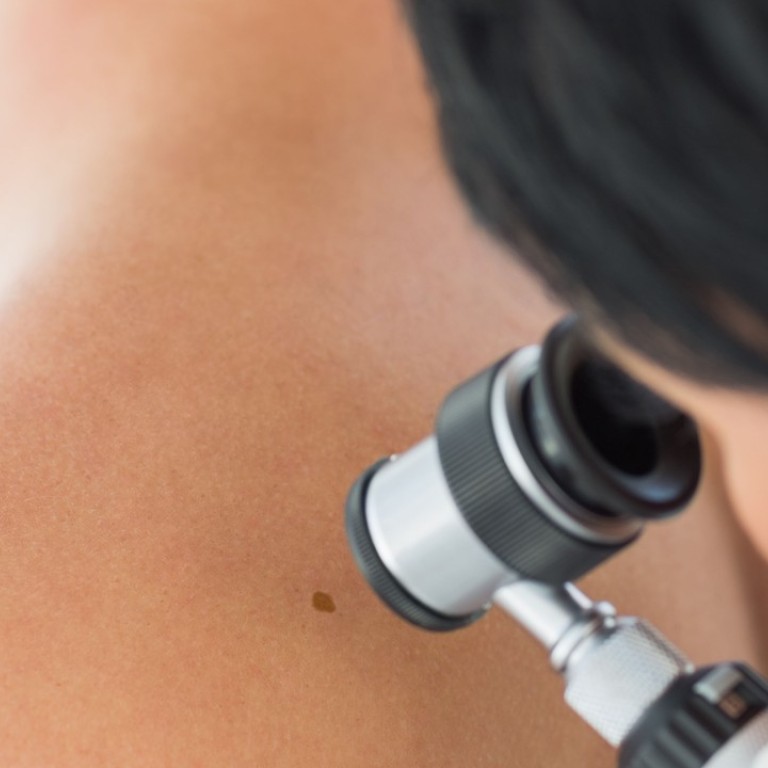
Melanoma patients who remove lymph nodes do not live longer, study finds
In other health news: becoming pregnant after breast cancer does not increase the risk of the cancer returning; and binge drinking linked to higher blood glucose levels in women
People diagnosed with melanoma, who then undergo surgery to have lymph nodes removed near the original tumour site, do not live longer than patients who forego this common operation, according to a report in the New England Journal of Medicine. The report was based on a study of more than 1,900 patients at more than 60 medical institutions worldwide.
When people are newly diagnosed with melanoma that has spread to one or more lymph nodes, they must decide whether or not to undergo extensive surgery to remove all the remaining nodes in that area of the body. The procedure, called completion lymph node dissection, is considered standard.
“The new findings will likely result in many fewer of these procedures being performed around the world,” says lead author Mark Faries. “The results also will likely affect the design of many current and future clinical trials of medical therapies in melanoma.”
Is cancer just bad luck? Lifestyle factors a lesser risk than previously thought, study shows
The removal of the nodes did help doctors better determine how much the cancer had spread, and in some cases prolonged the amount of time patients were disease-free, but did not translate to longer lives. Side effects were also frequent in those who had the surgery.

Pregnancy not dangerous for women who had breast cancer
Becoming pregnant after a diagnosis of breast cancer does not raise the risk of the cancer returning, according to the largest study of its kind to date. The study included 1,207 women under age 50 who had breast cancer that had not spread elsewhere in the body.
Most of the women in the study (57 per cent) had oestrogen receptor (ER) positive cancer, a type in which the tumours are fuelled by the hormone oestrogen. Some doctors have raised concerns that these women might face a higher risk of cancer recurrence if they were to become pregnant, due to hormonal changes during gestation. A total of 333 of the women became pregnant during the study, within in an average of about 2.4 years following diagnosis and treatment.
How dogs can detect breast cancer just by sniffing a piece of cloth
After a follow up of 10 years, researchers found no difference in disease-free survival between women who became pregnant and those who did not, irrespective of ER status. Pregnancy also showed surprising survival benefits for women who had survived ER-negative breast cancer. These women had a 42 per cent lower chance of dying than those who did not become pregnant.
“Our findings confirm that pregnancy after breast cancer should not be discouraged, even for women with ER-positive cancer,” says medical oncologist and lead study author Matteo Lambertini. “It’s possible that pregnancy could be a protective factor for patients with ER-negative breast cancer, through either immune system mechanisms or hormonal mechanisms, but we need more research into this.”AFP

Binge drinking can result in higher blood glucose levels in women, but not men
Regular high alcohol consumption and binge drinking from the age of 16 is associated with higher glucose concentrations in women’s blood – an important risk factor for type 2 diabetes – later in life, according to a study published in the open access journal BMC Public Health.
The study is the first to assess alcohol consumption data, starting in adolescence, over a 27 year period in relation to their blood glucose levels taken when they were 43 years of age. In women, total alcohol consumption and binge drinking behaviour throughout the 27-year period was significantly associated with higher blood glucose levels independent of BMI, hypertension and smoking status at the age of 43.
This association was not true for men, for whom only BMI and hypertension remained associated with increased blood glucose levels.
Dr Karina Nygren, lead author from Umea University, Sweden said the findings showed “that high alcohol consumption from ages 16 to 43” was associated with higher blood glucose levels in women but not in men. “Because higher blood glucose is a risk factor for the development of type 2 diabetes, our data suggest that informing people about the risk of high alcohol consumption at a young age could have positive health impacts further down the line,” she said.
Chinese adults diagnosed with diabetes live nine years less on average
Despite the association between alcohol, binge drinking and blood glucose only being significant in women, men still had higher blood glucose levels than women and consumed nearly three times as much alcohol between the ages of 16 and 43.
